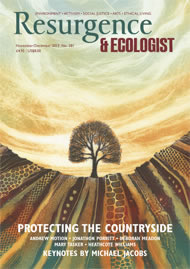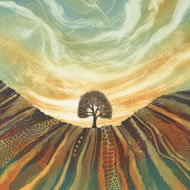History speaks of this fact very clearly.
Behind every great transformation a band of committed and active optimists worked day and night to realise their vision of a new social order. And in the end their once radical and marginal movements became mainstream realities.
The idea that we could end slavery was seen, at first, as too idealistic and as an obstacle to the economy. But hope and optimism triumphed. Similarly, until relatively recently most men could not see the point of giving women the right to vote and participate in politics. Now not only do we have female prime ministers in many countries, but women also work as MPs, ambassadors, judges, CEOs and in other leading positions in every walk of life. Fifty years ago black people had no vote in the USA. Now we have a black president in the White House.
Not so long ago if you stood against apartheid in South Africa you were shot at or put in jail. But now Nelson Mandela is seen as a man of hope and is considered one of the greatest moral and political figures in the world.
The sun never set on the British Empire, and the fight against colonialism was branded as terrorism. But thanks to optimists like Gandhi, imperialism is now a story of the past. The Communist Party, Red Army and Soviet rule over Central Asia and Eastern Europe seemed invincible. There, too, optimism triumphed: the Berlin Wall came down and power became more decentralised.
The list of such success stories is long and gives us ample evidence to believe that the power of ideas and optimism – backed by commitment and action – can shift consciousness, dissolve old paradigms and lay the foundations of a more moral and just social order.
There is no such thing as Utopia. Yet for the optimists, the Earth and the human species on it are an ever-evolving phenomenon. We are part of that process of change. But that change can go in either direction. Potentially we can evolve to be egoistic or to be egalitarian; we can learn to dominate or to participate; we can acquire the capacity to love or the ability to hate.
Believing that we have that potential, that possibility and that choice is the way of optimism. Pessimism makes us blind to that potential. “Human nature is greedy, selfish and violent. Nothing can be done about it.” Thus thinks the pessimist. But for the optimist there are seeds of altruism in the field of the human mind. We can minimise the weeds of greed and maximise the seeds of sharing and caring.
With human creativity, imagination and ingenuity we can build a future that is respectful of Nature, mindful of non-economic and non-materialistic values, and concerned with meeting genuine human needs.
The exploitation and destruction of Nature on an industrial scale is a recent phenomenon; what is created by humans can be changed by humans. Therefore let us work together to redesign our economy, industry and politics.
My new book, Soil Soul Society, is written in that mood of hope and optimism. I am suggesting that a new green movement, one that integrates ecological sustainability, personal spirituality and social justice, is more than capable of becoming mainstream – provided we all work together and build a movement similar to those that ended slavery, colonialism, racial discrimination and apartheid.
Equally, Jonathon Porritt’s new book, The World We Made, introduces a new ingredient to this process. He convincingly points out that we possess all the technological know-how to build a new economic system that meets the true needs of humankind, present and future generations, without damaging the sustainability of the ecosystem.
In my book I lay the philosophical foundation for a new ecological and social system. Jonathon, in his book, shows how that is achievable practically and technically.
In the marriage of my idealism and Jonathon’s pragmatism there is a hopeful indication of the steps the green movement must take now in order to transform the paradigm of economic growth to growth in sustainability, spirituality and planetary wellbeing.
Satish Kumar’s Soil Soul Society is published by Leaping Hare Press. The World We Made by Jonathon Porritt is published by Phaidon.







